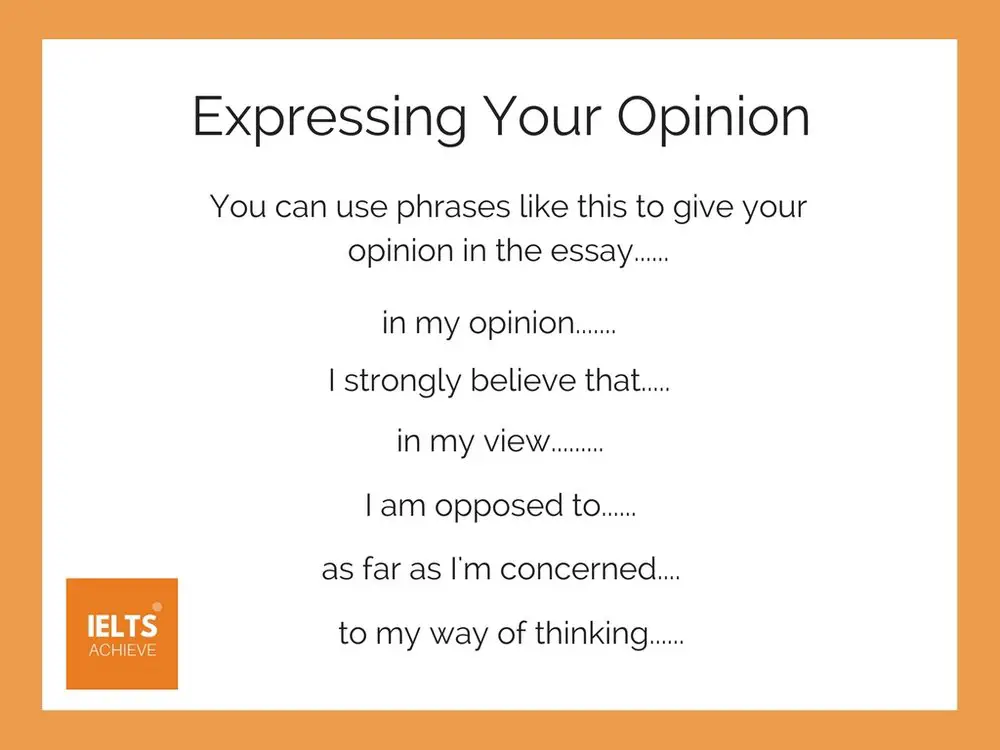
In this post, we will be looking in-depth at part 3 of the speaking test.
The IELTS Speaking Test lasts 11-14 minutes.
The test has three parts, where you are interviewed by a trained examiner. You are not allowed to use a dictionary during the test. IELTS Academic and IELTS General students take the same test and it is marked in the same way.
PART 3 INFORMATION
Part 3 = 3-4 minutes – A conversation between you and the examiner.
The examiner will lead the conversation by asking general questions, which relate to the topic/cue card used in part 2.
The questions asked will encourage you to share your thoughts, feeling and opinions. You are scored on your use of English, not on your general knowledge or opinions.
Part 3 Questions
Part 3 questions may seem difficult to answer, as they are less personal than questions in parts 1 and 2, they are more about society or the country as a whole. You should concentrate on giving your opinions and not worry so much about supporting them with facts.
Here is an example of a cue card question from part 2, followed by a part 3 question;
Part 2 Question
Describe one of your favourite possesions.
Part 3 Question
What kinds of objects do you think give status to people in your country?
Model Answer (High Level)
Personally, I think many people want to have the latest iPhone or other expensive gadgets to show off their status in society. Depending on the personal wealth of the individual, they may show their status through really expensive items, like cars, private planes or super yachts. In my country, it is quite common to see people wearing expensive clothes, using the latest gadgets and driving expensive luxury cars. it is also quite common in the summer months to see many yachts and super yachts. So in my opinion, luxury items seem to give prestige to some in my country.
Expressing Opinions
When giving your opinion, you can use the following idioms and structures;
- Personally. I think that…..
- In my opinion, I believe that……
- As far as I’m concerned…….
- If you ask me…….
- In my view…..
- In my experience……..
- I strongly believe that……..
- I have often felt that………
Try answering the following part 3 questions >>
Q. Why do you think people go to restaurants when they want to celebrate something?
Q. Which are more popular in your country: fast food restaurants or traditional restaurants? Why do you think that is?
Q. Some people say that food in an expensive restaurant is always better than food in a cheap restaurant – would you agree?
Think about the points below when you are answering;
- Allow your ideas to flow naturally.
- Use linking words and phrases.
- Use phrases that let the examiner know that you are expressing your opinion (see above).

Giving An Example
When you give your answer, include a specific example to gain more marks. You can mention something from your own personal experience, or something you have read about etc. You do not have to go into as much detail as you would for a part 2 answer, but a specific example can make your answer a high-level response.
Part 3 Question
Q. How should we educate children to protect the environment?
Model Answer (High-Level)
There are a number of ways that children can understand how to preserve the environment. For example, in school, they may complete projects where they have to clean up beach areas or learn about protecting animals. My friend teaches at a school and her students often organise beach litter collections. They remove waste from the beach, especially plastic bags and bottles, which can harm sea life, birds and other creatures. They do this as part of their environmental study programme.
Advantages / Disadvantages Questions
Common questions in part 3 look at both sides of an argument. You may see an advantage/disadvantage question, where you can bring your own personal experiences to be used as examples.
Part 3 Question
Q – What are the advantages and disadvantages of working in an open plan office space?
Model Answer (High-Level)
One of the benefits of working in this way is that you can easily talk to your colleagues. You can share ideas quickly and find out information without having to send a message or an email. In my opinion, working in an open plan office has the main disadvantage of being very noisy. This can affect your concentration levels, as the noise will distract you from your work. I used to work in an environment like this, which was very distracting and I found it so hard to concentrate. From my point of view, I think that there are more disadvantages to working in this type of environment.
Expressing more than one view
The examiners give high marks to those who can structure their answer well and use terms like; firstly (or first of all), secondly (second of all), thirdly and lastly. Similar to how you may structure a writing task answer, you can lead the examiner through your points using these linking words.
Part 3 Question
Q – What advantages do universities bring to society?
Model Answer (High Level)
In my opinion, going to university can bring many benefits to society, first of all, it can train people to have specialist knowledge that can benefit all, for instance, doctors, lawyers and architects. Secondly, when you learn specialist skills at university, you also learn how to interact with other people and work together. Lastly, having a skilled workforce can make both society and its systems better and continually striving to improve.
Linking Words
Using linking words and phrases will improve your band score, making your answer more coherent and natural.

I Don’t Know The Answer
What should you do if you don’t know the answer? Think about someone else’s opinion or something you have read about and form an opinion quickly. You can say something like “I have never really thought about that to be honest” to buy yourself some time while you think of what to say. You could also use one of the following sentences;
- Speaking off the top of my head….
- I’ve never given that much thought…..
- I don’t have much of an opinion on this, because…..
- I’m not really the right person to ask about this, because……
You need to show the examiner your use of English at a high level, not how impressive your opinions are, so by being honest and then discussing the question, you can expand and give your answer, for example;
Part 3 Question
Q – How do you think people will travel in the future?
Model Answer (High Level)
I’ve never given that much thought really! If I have to imagine what it will be like, I think that maybe some forms of travel will become more luxurious and more expensive. For example, flights might become more expensive if some of the aeroplanes are made into luxurious cabins, with private areas for passengers. This could also happen on trains, with passengers able to buy more expensive tickets for their own cabin or fancy seating area. The next generation of travel may become very high end and extravagant for those who want it.
What do you think of the answer? Even if you make something up, you need to show the examiner you have used English well to deliver your answer.
We hope you found this post useful in helping you to study for the IELTS Test. If you have any questions please let us know in the comments below or on the Facebook page.
The best way to keep up to date with posts like this is to like us on Facebook, then follow us on Instagram and Pinterest.
If you need help preparing for the IELTS Test, join the IELTS Achieve Academy and see how we can assist you to achieve your desired band score. We offer an essay correction service, mock exams and online courses.

